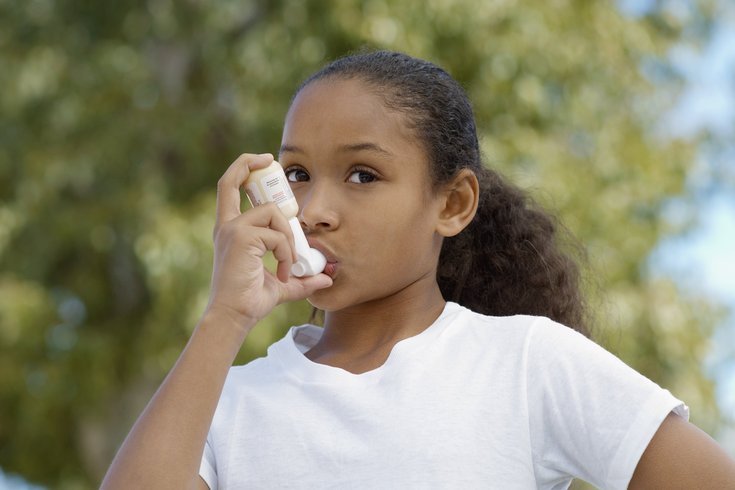
August 31, 2023
 Parinyabinsuk/iStock.com
Parinyabinsuk/iStock.com
Children with access to quality housing, clean air and nutritious food are less likely to develop asthma than children with less access to those resources, according to a new study.
Growing up in neighborhoods without quality housing, nutritious food and clean air can make children more susceptible to asthma, according to a recent study.
Researchers found that low-poverty U.S. neighborhoods with access to good education, green spaces and healthy food options have about 23 asthma cases for every 1,000 children. Communities with more poverty and less access to these resources see about 27 asthma cases for every 1,000 children, and neighborhoods with extremely limited resources have about 35 asthma cases for every 1,000 children.
The study analyzed asthma rates among 10,516 children between January 1995 and August 2022, then compared that data to the Child Opportunity Index, which links residential addresses with census data about neighborhood resources that are deemed essential for healthy childhood development. Researchers from the National Institutes of Health's Environmental Influences on Child Health Outcomes program published their work in the journal JAMA Pediatrics.
"Understanding neighborhood conditions could help researchers identify vulnerable children who are at high risk for developing asthma," said Izzuddin Aris, assistant professor of population medicine at Harvard Medical School and lead author of the study. "This information can also inform efforts by policymakers, researchers and community groups to improve children's health and foster equity across neighborhoods."
While researchers believe that more studies are needed to determine what specific neighborhood qualities lead to more child asthma diagnoses, they point to previous research that shows people living in affluent and resource-filled neighborhoods are more physically active, have healthier eating habits and aren't exposed to as much air pollution as those living in poorer communities, which studies have previously linked to asthma development in children.
Asthma impacts about 7.5 million children in the United States. According to Cleveland Clinic, childhood asthma diagnoses are steadily growing as children are increasingly exposed to allergens, like dust and secondhand smoke, decreasingly exposed to immunity-building illnesses and breastfeeding less.
About 21% of children in Philadelphia have asthma, according to the University of Pennsylvania's Perelman School of Medicine. That is more than double the national rate. Researchers have pointed to both indoor and outdoor pollution as contributors to the city's high asthma rates.
A 2019 report conducted by the Philadelphia Department of Public Health found a disparity in asthma-related hospitalizations among children based on race and zip code. Black and Hispanic children were about five times more likely to be hospitalized for asthma than white children. Hospitalization rates were highest in North and West Philly.
In 1997, the Children's Hospital of Philadelphia started its Community Asthma Prevention Program to support families of children with asthma. Through in-home visits and classes, health care workers give families tools to mitigate and remove asthma triggers. Last year, CHOP and Penn Medicine created a new asthma research center with a goal of expanding CAPP into Chester, where more than 38% of children suffer from asthma.
Parents should take their child to a doctor if they experience common asthma symptoms like whistling or wheezing when breathing, shortness of breath, chest congestion, frequent coughing, delayed recovery after a respiratory infection or trouble breathing that hinders play or exercise. While asthma is not curable, children may outgrow their symptoms as they age.